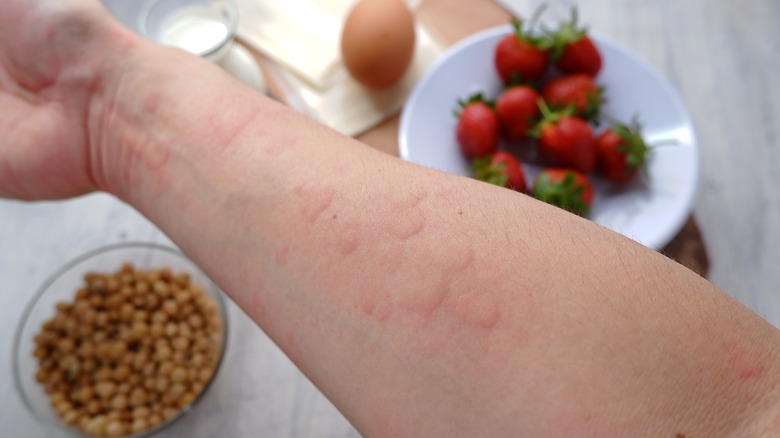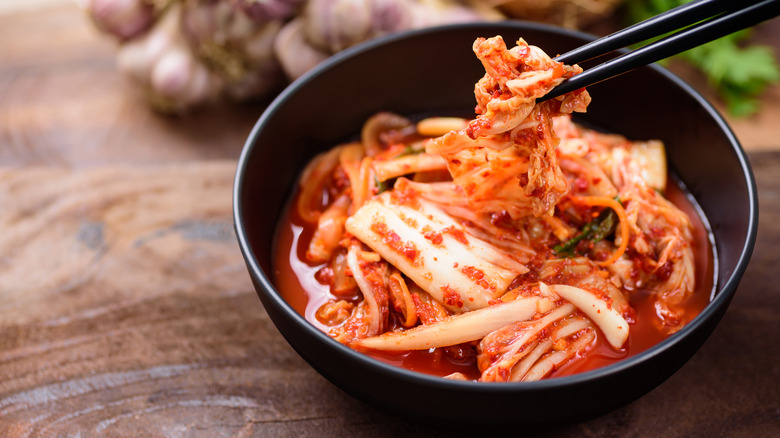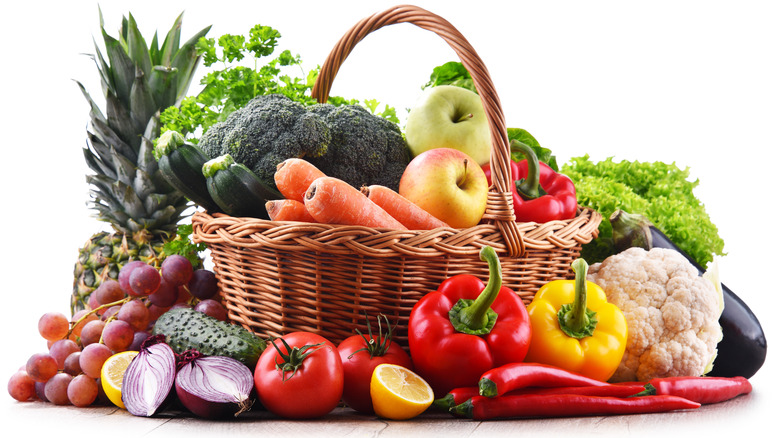The Role High-Histamine Foods Can Play In Your Diet
When you think of histamines, the first thing you probably think of is allergies. Many of us have unfortunately suffered from some type of allergy or another, whether it is to dust, pet dander, or simply chronic springtime allergies to pollen. When these allergy attacks hit, we probably reach for an over-the-counter antihistamine to calm them down.
However, while histamines might be considered an irritant that makes us feel sick, they are actually an important part of the immune system that helps protect your body against potential dangers. Histamines are simply chemicals produced by the body's immune system when it encounters an allergen, such as dust or pollen, according to WebMD.
When histamines are released, they tell the body to increase blood flow to certain irritated areas, which can also trigger inflammation and lead to symptoms of an allergic relation, like a runny nose, watery eyes, itchiness, hives, and even coughing. However, humans are not the only creatures that have histamines in our bodies. Animals and plants also contain natural histamines in their bodies, which can interact with the histamines in the human body if consumed.
Some people have a histamine intolerance
Histamines in foods are not inherently bad. In fact, most people have no problems digesting histamines in food. However, as Amy Burkhart, MD, RD, explained to Real Simple in 2021, some people have what is known as histamine intolerance, which makes it difficult for their bodies to break down and digest histamines when consumed. Foods that are high in histamines are likely to cause unpleasant reactions, including digestive issues such as bloating, nausea, and diarrhea, as well as more common allergy symptoms such as itchiness, headaches, and skin rashes such as hives or eczema, in individuals who suffer from histamine intolerance.
Histamines are formed as a result of bacteria's interaction with other substances in food. Therefore, foods that are high in histamine include products that are aged or fermented, since the less fresh food is, the more likely it is to contain more bacteria that produce histamines. This means alcohol has a high histamine content. This also includes other fermented items like kimchi or kombucha. After all, what you're really drinking when you drink kombucha may surprise you.
Additionally, many foods that are often considered healthy, such as dried fruit, avocados, yogurt, eggplant, and even spinach, are also histamine-rich and could trigger symptoms in those who are sensitive, according to Healthline.
A low-histamine diet can help
Histamine intolerance can mimic symptoms of many other allergies and illnesses, so it's important for those who think they might be experiencing an intolerance to see a doctor.
There are several reasons a person might experience sensitive to histamines. "The first is genetics. Different people will metabolize histamines differently," doctor and registered dietitian Amy Burkhart explained to Real Simple. "The second is taking medications, which can affect how histamines are broken down. Lastly, underlying health conditions can affect a person's ability to tolerate histamine," she told the magazine.
While there's no one-size-fits-all cure for histamine intolerance, eating a low-histamine diet has been shown to help reduce symptoms. Luckily, there are plenty of foods that contain low amounts of histamines. Fresh meat and fish, eggs, olive oil, and most fresh fruits and vegetables are all good choices for those who are looking to eat a low-histamine diet, per Healthline.
Additionally, Burkhart recommends eating fresh food as much as possible. "When people are working with histamine intolerance, they need to eat everything fresh, and if they have leftovers, freeze it immediately. Then, don't defrost it until right before you eat it," she explained.
Sadly, that means wine and cheese nights are probably a no-go for those who are sensitive to histamines in food. But Burkhart also says the dietary changes might not have to be permanent. Most of her patients begin to experience improvements in "three to four weeks," and she assures them that "it gets easier."


